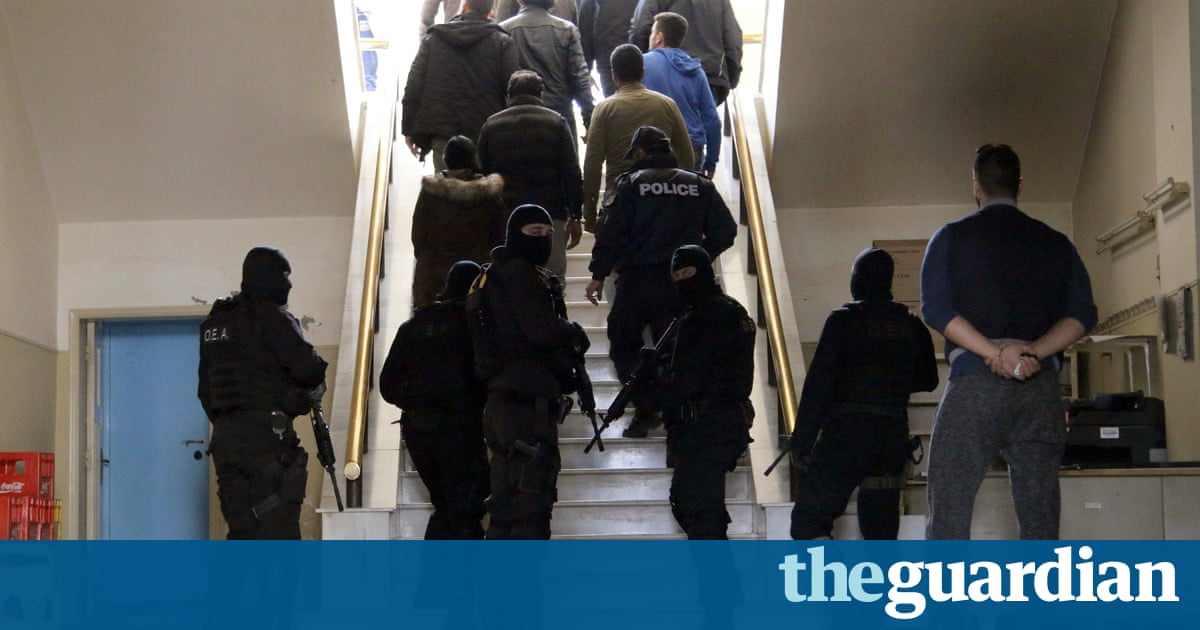Law enforcement agency reports alarming increase in people smuggling and digital attacks on businesses

Europol has warned that the number of criminal gangs operating in Europe has surged to at least 5,000, with alarming increases in human smuggling activity and digital attacks on businesses known as ransomware.
The EUs law enforcement agency said it had identified another 17,500 individuals suspected of involvement in smuggling people across borders, adding to a list that already topped 50,000 in 2014.
We can see obvious evidence of an expanding community in migrant smuggling, as criminals have sensed a fresh opportunity to make a quick buck, said Europols director, Rob Wainwright.
Europols latest serious organised crime threat assessment (Socta) details a step change in the way that crime gangs work, with almost half now operating as poly criminals across different criminal subcultures. Overall, the number of groups in operation has topped 5,000.
The report paints a disturbing picture of technology becoming the primary facilitator for lawbreaking, with entrepreneurial criminal startups mushrooming across the darknet.
This distributed anonymous network, accessible via software such as The Onion Router (TOR), I2P and Freenet, is now the main supplier of raw materials for forged documents.
Many drug dealers also use it to run semi-professional online businesses from their bedrooms. Some of these online markets operate in an Amazon-style way with customer feedback, 24-hour guaranteed deliveries, and help and support desks, Wainwright said.
He pinpointed the digital attacks on businesses that have proliferated in recent years as a particular concern. Until now, cryptoware has mostly targeted small and medium-sized businesses, by encrypting their user-generated files and denying them access until a ransom is paid.
But Wainwright said: The technological capacity of organised criminal gangs is advancing all the time and will very soon be powerful enough to get through the defences of larger corporations like banks.
The largest corporations will have to decide, as smaller businesses do today: Do you pay the ransom or not? It is a tough call and there are many aspects of that issue that have to be taken into account.
Europol believes that the rise of the darknet raises questions for lawmakers about how law enforcement authorities can identify criminals hiding in its shadows.
But civil liberties groups fear that legal reform could potentially lead to political activists, lawyers and journalists being targeted by some security forces.
Silkie Carlo, of Liberty, said: We view encryption as vital to protecting our rights to privacy and numerous rights that come from that, including freedom of expression and maintaining a free press. When encryption is under attack, so is our right to have a private conversation.
Wainwright said: We should not be calling for banning encryption. It is a vital way of how we run e-commerce but we havent got the balance right between keeping the internet a free part of our lives, and a safe one as well.
Every day, about 1.7 million people use the darknet, in which 57% of all marketplaces and forums are devoted solely to criminal activity, according to figures cited in the Europol threat assessment.
It will probably be the last Socta produced with the UKs direct participation, as concerns grow that Brexit could increase British vulnerability to organised crime and terror threats.
Earlier this week Julian King, the UKs last remaining commissioner, who holds the security union brief, said Britain would be safer if it continued to work closely with Europol after Brexit.
I make no secret of my belief that both the UK and the EU will gain by continuing to cooperate as closely as possible on security, he said. We face shared threats and these threats will not go away once the UK leaves the EU.
Last year, the UK reported more than 3,000 cross-border crime and terror cases to Europol, while European arrest warrants allowed the fast tracking of the removal of offenders from British streets.
It is a public security issue to ensure that the UK has mechanisms to continue to do that, Wainwright said.
Read more: www.theguardian.com




![[Video] How to get rid of bed bugs in Toronto](https://www.thehowtozone.com/wp-content/uploads/2019/10/maxresdefault-2-100x70.jpg)


